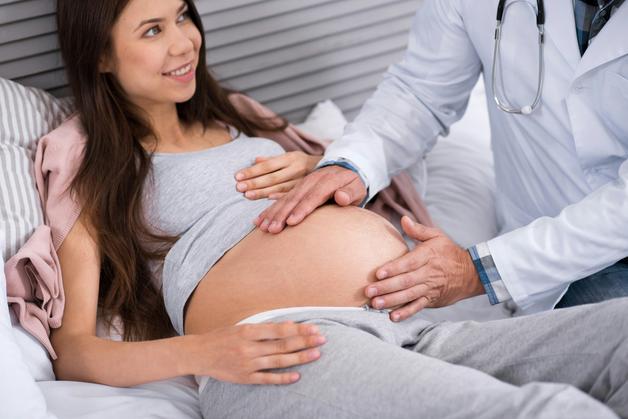Finding yourself calculating restroom proximity before leaving the house? Or maybe sudden, insistent urges to pee interrupt a meeting, a shopping trip, or even the rare quiet moment? Frequent urination pregnancy is a topic brimming with both genuine frustration and curiosity among expectant parents. Is it harmless? Should one worry? And perhaps most importantly—how to limit its impact on comfort and daily life without risk to parent or baby? This theme, both universal and deeply personal, touches on everything from fluctuating hormones to unexpected bodily sensations. Here, you’ll unravel why frequent urination pregnancy persists across trimesters, the physiological orchestra behind it, what differentiates a common inconvenience from a symptom that merits attention, and practical steps to restore serenity in your day-to-day life.
The physiological recipe for frequent urination pregnancy
Why does frequent urination pregnancy so often accompany those first, hopeful weeks—and stubbornly linger for months? The answer: a fascinating interplay of hormones, anatomy, and the remarkable adaptations involved in pregnancy.
- hCG levels surge: One of the earliest markers, the rise in human chorionic gonadotropin (hCG) soon after conception, sets off a chain of events. Blood flow to the kidneys increases; renal plasma flow and glomerular filtration rate spike. Result? Your bladder fills at lightning speed—even as output seems minuscule.
- Progesterone shifts: Elevated progesterone, a hormone vital for maintaining pregnancy, softens smooth muscle tissue across the pelvic region—including the bladder itself. This relaxation means the bladder is less “tight,” so even partial filling triggers those familiar “must go now” signals.
- Increased blood volume: Prepare for numbers: nearly a 30–50% rise in total blood volume occurs during pregnancy. As more blood is filtered, more urine forms, and the cycle accelerates.
- Mechanical pressure: As the uterus expands, it descends and exerts newfound pressure on the bladder from below. Imagine the bladder’s storage space shrinking, sometimes dramatically, with each week that passes.
These mechanisms combine, overlapping and intensifying based on trimester, hydration, and various individual factors. The result: frequent urination pregnancy moves from fleeting annoyance to routine reality for many.
Fluctuations through the trimesters: what to expect
First trimester: Even before a visible bump, the story begins. Hormonal surges prompt the kidneys to work overtime, sending parents searching for restroom exits everywhere they go. Notably, for some, urgency can be the very first sign of pregnancy—sometimes felt weeks before a missed period.
Second trimester: A brief interlude for many, as the uterus grows upward and relieves the bladder from its squeeze. Frequency may drop, though not always completely vanish. Still, it’s a phase to (briefly) cherish.
Third trimester: The finale arrives with renewed pressure. The baby “drops” lower into the pelvis, and the bladder, already affected by changes in detrusor muscle tone and pelvic floor adaptation, finds itself squeezed and hypersensitive. Night-time urgency, known as nocturia, often escalates here—fragmenting sleep and highlighting just how dynamic these changes are.
When does frequent urination pregnancy start, and how long will it last?
Most experience an uptick as early as two to three weeks post-conception, propelled by those invisible hormonal shifts. The intensity will ebb and flow: peaking in the first trimester, easing by mid-pregnancy, then intensifying again as the third trimester draws near. And after delivery? Rapid hormone changes and postpartum diuresis (the body’s way of flushing excess fluid) may initially keep trips to the bathroom high, but within six weeks, most find urinary frequency returns to pre-pregnancy patterns. However, muscle weakness or stress incontinence (leakage with coughing, sneezing, or movement) may linger—especially if the pelvic floor has been stretched or challenged during birth.
Underlying causes of frequent urination pregnancy: distinguishing the common from the cause for concern
Certainly, urinary frequency is a nearly ubiquitous symptom. Yet not all causes are benign:
- Hormonal and anatomical factors remain the main players, as previously described.
- Constipation—frequent in pregnancy due to sluggish bowels—can intensify bladder pressure.
- Weakened pelvic floor: Muscles supporting the bladder lose tone, lowering resistance and making leakage or urgency more likely.
Keep an eye out for less typical scenarios:
- Urinary tract infection (UTI): A higher risk during pregnancy due to anatomical and immunological shifts. Symptoms include dysuria (painful urination), hematuria (blood in urine), malodorous urine, or pain radiating to the back. UTIs may also present silently, which is why routine urine testing is recommended.
- Gestational diabetes: In some, elevated blood sugar draws extra fluid into the urine (polyuria), with frequency that may be striking in its volume and intensity.
Red flags: when does frequent urination pregnancy require medical advice?
While frequent urination pregnancy is often routine and harmless, several warning signs demand prompt professional evaluation:
- Burning, stinging, or pain on urination
- Cloudy, dark, or foul-smelling urine
- Blood visible in the urine (even just a pink tinge)
- Fever, back pain, chills, or shivering
- Involuntary leakage strong enough to limit daily life
- Rapid change in urinary patterns—either sudden frequency or a dramatic decrease
UTIs left untreated are more likely to ascend to the kidneys (pyelonephritis), potentially triggering preterm labor or more serious complications—a clear case for proactive care.
Coping with frequent urination pregnancy: strategies for day and night
When repetitive restroom trips begin to shape schedules and diminish sleep quality, it’s more than an annoyance; it’s a genuine disruption. Strategies for supporting comfort include:
- Adjusting fluid intake: Hydration is vital, but try distributing water over the day, reducing intake an hour before bedtime to gently curb night-time disruptions.
- Steering clear of bladder irritants: Coffee, black or green tea, sodas, and other diuretics can increase urgency—they’re worth limiting if frequency becomes exhausting.
- Clothing matters: Breathable, cotton underwear and flexible pants reduce heat and friction, minimizing added abdominal pressure.
- Hygiene focus: Always wipe front-to-back to limit contamination risk, and avoid harsh soaps near the urethra; gentle cleansers or even just water are sufficient for most.
- Leaning forward on the toilet: This simple position can help with fuller bladder emptying—a small tweak that can minimize repeated “false alarms.”
- Bladder habits: Don’t ignore the urge; holding urine for long periods increases UTI risk and doesn’t “train” the bladder—in pregnancy, timely response protects wellbeing.
- Night routine: Elevate legs late afternoon to reduce fluid shifting toward the bladder overnight, and empty the bladder before sleep.
Pelvic floor approach: exercise, posture, and incontinence prevention
Pelvic floor strength is rarely top-of-mind—until pregnancy puts its resilience to the test. Proactive Kegel exercises, performed by contracting the muscles used to stop urine flow (hold for 5–10 seconds, repeat several times per session), can boost control and minimize stress leaks. As muscle tone improves, many find both urgency and incontinence diminish. Consider consulting a pelvic floor specialist if leaks are significant or persistent—targeted guidance can make all the difference.
Preventing complications: practical prevention and monitoring
- Emphasize gentle hygiene practices, limiting exposure to chemicals or harsh wipes.
- Urinating after sexual intercourse: This helps flush out bacteria, reducing UTI risk.
- Embrace a fiber-rich diet (fruits, whole grains, vegetables). Regular bowel movements take unnecessary pressure off the bladder—and improve overall comfort.
- Beware of over-the-counter cranberry supplements: While often touted for UTI prevention, not all are established as safe in pregnancy. Always discuss with a healthcare provider before introducing supplements.
- Concerned about gestational diabetes? Blood sugar screening and prompt management protect both parent and baby.
Routine prenatal care includes urine screenings at every visit. Never hesitate to signal changes, even if they seem minor. Vigilant observation helps avert complications before they arise.
Special context: frequent urination pregnancy after IVF and fertility treatments
Hormonal medications used during IVF/assisted reproduction can prime the body for amplified effects: heightened kidney response, dramatic hCG surges, and rapid enlargement of the uterus all contribute to increased bladder sensitivity and urgency. With intensified medical monitoring in these pregnancies, every new urinary symptom deserves careful attention and open conversation with your care team.
Complementary insights: diet, natural remedies, and specialist input
Some favor alkalizing foods—think leafy greens, certain seeds, and particular fruits—for potential comfort, though robust research is limited. Herbal and natural supplements remain a gray area: always consult a pregnancy specialist before adding anything new, no matter how “harmless” the reputation. Midwives and pregnancy care professionals can blend traditional and alternative perspectives, adapting advice to your health story and personal beliefs.
Related subtopics
Distinguishing frequent urination pregnancy from incontinence
It’s easy to conflate the two, but they stem from different sources. Frequent urination pregnancy is all about frequency—often with complete control over initiation and bladder release. Incontinence, conversely, involves involuntary leakage, sometimes linked to stress (physical movement) or urge (an overwhelming signal with little time to react). The distinction matters for both comfort and targeted management.
The why and how of nocturia in pregnancy
Nocturia is that persistent call to the bathroom just as deep sleep beckons. It’s driven by hormonal fluid shifts, increased kidney activity, and, in the third trimester, the mechanical squeeze from a descending uterus. Nightly routines with bladder-emptying and limited pre-bed fluids can soften its impact. But if pain, fever, or alarming symptoms accompany these nightly awakenings, a healthcare evaluation becomes priority.
Gestational diabetes and urinary symptoms
High blood sugar pulls water into the urine (osmotic diuresis), making both volume and frequency spike. Parents may also notice intensified thirst and notable fatigue. Management focuses on blood glucose monitoring, dietary adjustments, suitable activity, and medical guidance as needed.
Bladder adaptation: a physiological feat
The bladder, once spacious and elastic, contends with hormone-driven relaxation and increasing constraint. The detrusor muscle—responsible for squeezing urine out—loses some vigor under progesterone’s influence. Simultaneously, the pelvic floor supports are left more vulnerable to stretch and strain. These combined effects demand adaptation on a scale rarely matched outside pregnancy.
Key takeaways
- Frequent urination pregnancy is a nearly universal experience, tied to remarkable physiological shifts, and rarely signifies a problem—unless paired with pain, blood, fever, or abrupt change.
- The main contributors include hormonal surges, increased blood filtration, and ever-growing uterine pressure on the bladder.
- Strategies such as mindful hydration, prioritizing pelvic floor health, a fiber-rich diet, and protective hygiene habits can make a tangible impact on comfort.
- Distinguishing common frequency from concerning symptoms is essential. Burning, fever, strong-smelling urine, or severe incontinence justifies prompt professional review.
- Empowerment comes from informed choices. Numerous resources exist—including regular contact with healthcare professionals, and supportive digital companions. For tailored advice and free health questionnaires for children, explore the Heloa app.
From the earliest hormone changes to the final trimester, frequent urination pregnancy can reshape routines and sleep in startling ways. Yet, with well-founded knowledge and a toolkit for comfort, managing this common symptom becomes just one more facet of the pregnancy journey—a passage marked by adaptation, anticipation, and resilience.
Questions Parents Ask
Can frequent urination be an early sign of pregnancy before a missed period?
Absolutely, some future parents notice an increased need to go to the bathroom even before realizing they’re pregnant. This can happen as early as a couple of weeks after conception, due to hormonal changes that prompt the kidneys to work a bit more. If you’re experiencing this alongside other subtle changes, it can be reassuring to know that it’s a recognized early symptom for many.
How frequent is “normal” when it comes to urination in pregnancy?
There’s really no one-size-fits-all answer here. Some may notice only a small increase, while others feel the urge almost constantly, even very soon after the last trip. This can vary based on hydration, stage of pregnancy, and individual differences. The key point is that both minimal and significant increases can be perfectly normal. If the frequency comes with discomfort, burning, or other unusual symptoms, it’s important to reach out to a healthcare professional for support.
Does frequent urination in pregnancy mean something is wrong with the kidneys?
Not at all—frequent urination in pregnancy most often reflects healthy, expected changes in your body. Hormones are prompting increased blood flow to the kidneys and the growing uterus creates gentle pressure on the bladder. Both are entirely natural adaptations as pregnancy progresses. The kidneys usually continue to function well, so unless you notice other concerning signs, such as pain or fever, there’s no need to worry.








